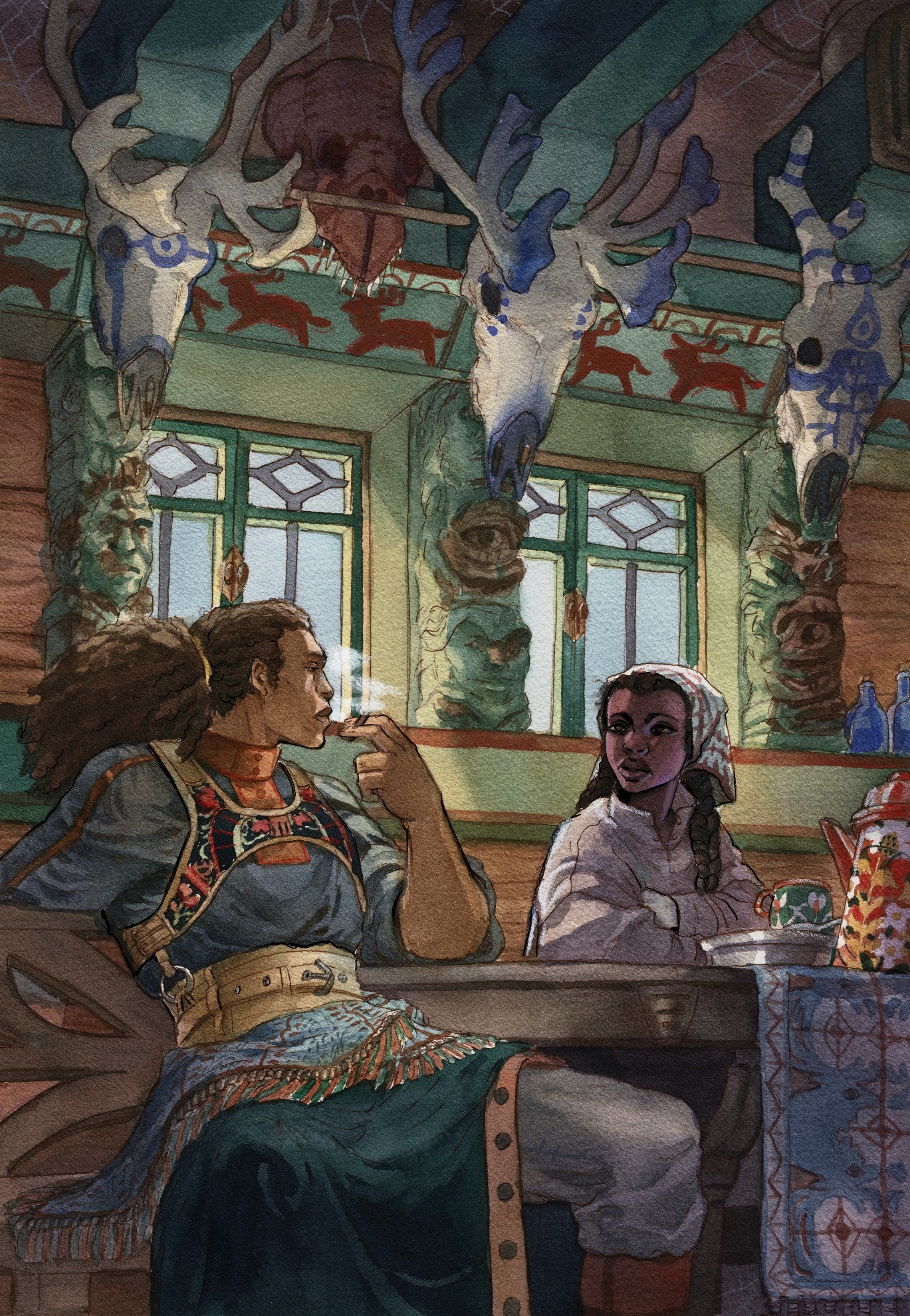Chapter 63:
The Co Dalmede
The first night on the stove was hard for Moth, with the council of reindeer skulls watching her through empty sockets – but at the same time, it was comforting for Moth to see Lt. Grotte snoring on her chair by the fire, while behind her Nehem lay asleep on a couch blocking the front door.
Lt. Grotte was the first one awake before dawn – she groaned and grumbled out of her chair, stoked up the fire and put a kettle on to boil, then grabbed some rags and a pail to go wash by the pump outside.
Moth considered getting up, but her eyes closed for a moment, and the stove beneath her was getting toasty again, and she woke up several hours later to an empty kitchen. She heard footsteps upstairs and watched silt drift down from the ceiling.
Lt. Grotte and Nehem stomped down the stairs, and Lt. Grotte exclaimed, “Awake at last, lady? Shift yourself, we need to clean out that garret. You do have work clothes, don’t you?”
Groggily, Moth stared at her bags of luggage. She did not have work clothes.
Lt. Grotte fetched her a blouse to wear, which fitted Moth like a dress, and shoved a cup of coffee into Moth’s hand. It was the worst cup of coffee she’d ever seen or smelled.
“Military rationed coffee, it’ll wake you up quick enough, eh. There’s cheese bread on the shelf if you want something to support you before you jump in, but take
